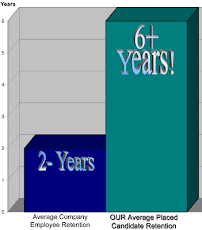Monday
Brain Hubs creat jobs for middle skilled
AUSTIN, Texas—As the nation grapples with stubbornly high unemployment, Texas's political and high-tech capital shows one way to create good jobs for people who didn't go to college: Attract highly skilled entrepreneurs, and watch the companies they start hire lower-skilled workers.
[MIDJOBSsub] Agence France-Presse/Getty Images
The Texas state Capitol in Austin, a city that in the past decade has added 50,000 'middle-skill' positions that pay roughly $38,000 a year.
Praxis Strategy Group, an economic-development consultancy, estimates Austin added 50,000 "middle-skill" positions in the past decade. These are jobs that require a two-year associate's degree or the equivalent work experience, and pay a median wage of $17.30 an hour, or $38,000 a year. That pace of growth is roughly four times faster than the nation's as a whole, three times that of New York and Portland, Ore., and twice that of Phoenix.
Austin's success in creating middle-class jobs runs against the grain of national trends. As America's shift from manufacturing to the service sector has accelerated, economists have noted a hollowing out of such jobs.
In recent decades, a select number of brain hubs like Austin have attracted a higher percentage of well-educated workers and a lopsided share of new investment and young companies. In 1970, the top 10 most-educated metropolitan areas among the nation's 100 largest had an average of 23% of workers holding a bachelor's degree or higher, compared with 10% in the bottom 10, according to an analysis of Census data by Harvard University economist Edward Glaeser. The 13-percentage-point gap has widened every decade since, and had doubled by 2010.
Where Jobs Can Be Found
See the growth in middle-skill jobs from 2001 in Austin and other regions.
http://online.wsj.com/article/SB10001424052970204753404577066470694261462.html
[MIDJOBSsub] Agence France-Presse/Getty Images
The Texas state Capitol in Austin, a city that in the past decade has added 50,000 'middle-skill' positions that pay roughly $38,000 a year.
Praxis Strategy Group, an economic-development consultancy, estimates Austin added 50,000 "middle-skill" positions in the past decade. These are jobs that require a two-year associate's degree or the equivalent work experience, and pay a median wage of $17.30 an hour, or $38,000 a year. That pace of growth is roughly four times faster than the nation's as a whole, three times that of New York and Portland, Ore., and twice that of Phoenix.
Austin's success in creating middle-class jobs runs against the grain of national trends. As America's shift from manufacturing to the service sector has accelerated, economists have noted a hollowing out of such jobs.
In recent decades, a select number of brain hubs like Austin have attracted a higher percentage of well-educated workers and a lopsided share of new investment and young companies. In 1970, the top 10 most-educated metropolitan areas among the nation's 100 largest had an average of 23% of workers holding a bachelor's degree or higher, compared with 10% in the bottom 10, according to an analysis of Census data by Harvard University economist Edward Glaeser. The 13-percentage-point gap has widened every decade since, and had doubled by 2010.
Where Jobs Can Be Found
See the growth in middle-skill jobs from 2001 in Austin and other regions.
http://online.wsj.com/article/SB10001424052970204753404577066470694261462.html
Subscribe to:
Comments (Atom)













